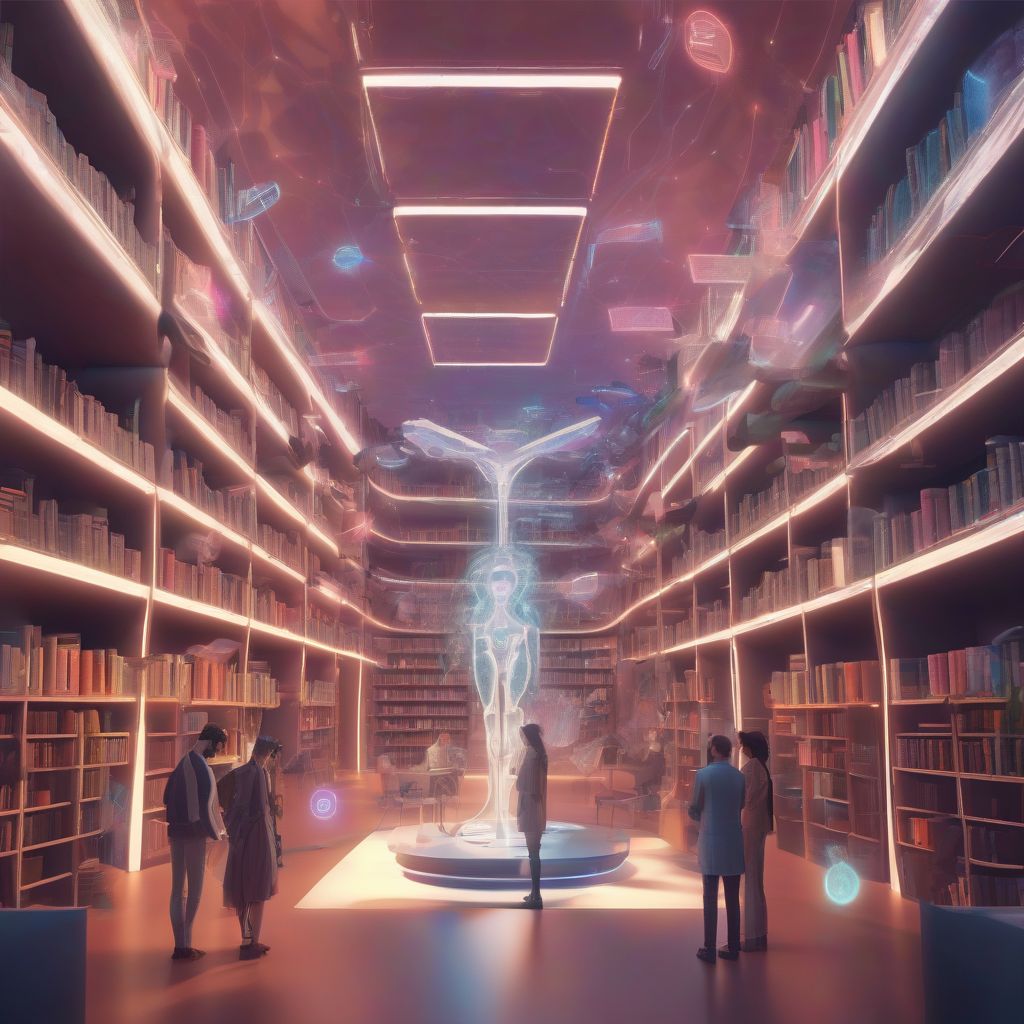Imagine a literary world where understanding a text isn’t just about deciphering words on a page, but delving into the rich tapestry of the author’s life, influences, and intentions. That’s the essence of author studies, and its future is brimming with both exciting possibilities and complex challenges.
Rethinking the Author in the Digital Age
For decades, the very idea of the “author” has been debated, deconstructed, and even declared “dead.” Post-structuralist thought encouraged us to move away from biographical interpretations and focus solely on the text itself. Yet, the author refuses to disappear entirely. In the digital age, with unprecedented access to information about authors’ lives, the question of authorship takes on new urgency. The future of author studies lies in navigating this complex terrain, acknowledging the limitations of biographical criticism while recognizing the valuable insights it can offer.
The Rise of Biographical Data and Digital Archives
The internet has revolutionized access to archival materials, letters, manuscripts, and even social media posts. This wealth of information presents both opportunities and challenges for author studies. We can now reconstruct authors’ lives in greater detail, understand their creative processes, and trace the evolution of their ideas. However, this also raises ethical questions about privacy, interpretation, and the potential for misrepresentation. As one scholar put it, “We are drowning in information but starving for wisdom.” The future of the field hinges on developing critical methods for evaluating and interpreting this vast amount of data.
Beyond Biography: Exploring Interdisciplinary Connections
The future of author studies isn’t just about digging up more biographical facts. It’s about integrating those facts into a broader understanding of the author’s work and its cultural context. This involves drawing on insights from other disciplines, such as history, sociology, psychology, and even neuroscience. For example, exploring an author’s medical history might shed light on recurring themes in their work, while analyzing their social network can reveal influences and collaborations that shaped their writing.
Engaging with New Media and Authorship
The digital age has also transformed the very nature of authorship. The rise of fan fiction, collaborative writing platforms, and online communities challenges traditional notions of individual authorship and raises new questions about intellectual property and creative ownership. How do we study authorship in a world where texts are constantly being reinterpreted, remixed, and re-created? This is a key question for the future of the field.
The Author as Brand: Navigating the Commercialization of Literature
In today’s literary marketplace, authors are increasingly seen as brands. Their public persona, social media presence, and even their lifestyle choices become part of their literary identity. This commercialization of authorship raises ethical concerns about the relationship between art and commerce, and how it influences both the creation and reception of literary works. The future of author studies must grapple with these complexities and develop new methods for analyzing the interplay between authorial identity and market forces.
Expanding the Canon: Recovering Marginalized Voices
One of the most promising aspects of the future of author studies is its potential to expand the literary canon and recover the voices of marginalized authors. By exploring the lives and works of women writers, writers of color, and LGBTQ+ writers, we can gain a richer and more inclusive understanding of literary history. This involves not just adding new names to the list, but also re-evaluating existing critical frameworks and challenging traditional notions of literary value.
The Future of Interpretation: Embracing Complexity
The future of author studies lies in embracing complexity. It’s about moving beyond simplistic biographical readings and recognizing the multifaceted nature of authorship. This involves acknowledging the limitations of our knowledge, embracing ambiguity, and engaging in open-minded dialogue about the meaning and significance of literary works.
 The Future of Author Studies
The Future of Author Studies
Collaboration and Digital Humanities
The rise of digital humanities offers exciting new tools and methodologies for author studies. Digital archives, text analysis software, and network mapping tools can help us uncover hidden connections, visualize complex relationships, and generate new insights into authors’ lives and works. The future of the field will undoubtedly involve greater collaboration between literary scholars and digital humanists.
Conclusion
The future of author studies is full of potential. By embracing new technologies, engaging with interdisciplinary perspectives, and challenging traditional assumptions, we can deepen our understanding of literature and its creators. While the challenges are significant, the rewards of exploring the rich and complex world of authorship are immeasurable. What are your thoughts on the future of author studies? Share your perspectives in the comments below. We invite you to join the conversation and help shape the future of literary scholarship.



